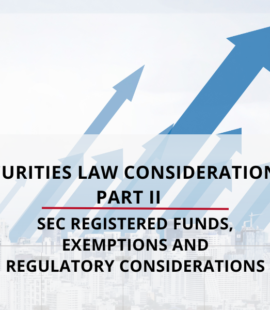Cybersecurity: Attacks, Risk Mitigation, and Regulatory Compliance
In an increasingly digital world, where financial transactions and sensitive information are often stored and transmitted electronically, investment advisers face a growing threat from cyber-attacks. The financial sector is a hot bed of sensitive personal and financial data making it a magnet for cybercriminals. … Read More





